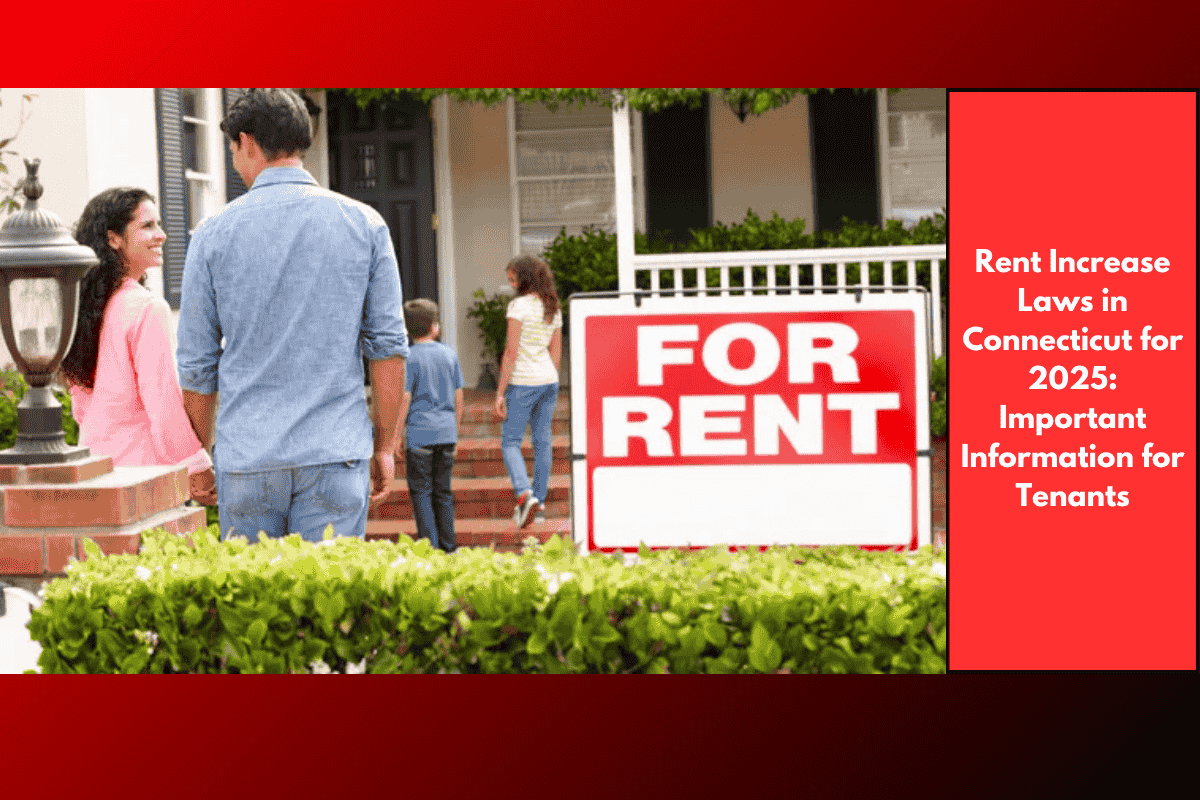Rent increases can be a stressful experience for tenants, especially when they’re faced with unexpected hikes in their monthly rent payments. In Connecticut, there are specific rules and regulations governing how and when landlords can raise rent. As we approach 2025, understanding these laws is crucial for tenants to ensure their rights are protected. This article provides an overview of Connecticut’s rent increase laws for 2025 and offers important information for tenants to navigate this issue.
Overview of Rent Increase Laws in Connecticut
In Connecticut, there are no state-wide rent control laws that limit the amount a landlord can increase rent. However, there are still regulations in place that guide how and when a landlord can increase rent. For tenants, knowing these rules can help avoid surprises and ensure that rent hikes are fair and legal.
Key Factors Affecting Rent Increases
Notice Period:
Connecticut law requires landlords to provide proper notice before increasing rent. The amount of notice depends on the type of rental agreement:
For month-to-month leases: Landlords must provide at least 30 days’ written notice before raising the rent.
For fixed-term leases: If the lease term is coming to an end and the landlord intends to raise the rent, they must provide notice before the lease expires. The notice period is generally 60 days for most tenants in a fixed-term lease.
No Rent Control:
Unlike some states, Connecticut does not have statewide rent control laws, meaning there are no caps on how much a landlord can increase the rent. However, this does not mean that a rent increase can happen at any time or in any amount. The increase must be fair and reasonable, and tenants must be given proper notice.
Rent Increases During Lease Terms:
Landlords cannot increase the rent during the term of a fixed-term lease unless specifically stated in the lease agreement. If your lease includes a clause allowing for rent increases, the landlord can raise the rent as per the agreed terms. Otherwise, rent can only be increased when the lease is up for renewal.
Unconscionable Rent Increases:
While Connecticut does not have rent control, there are protections against “unconscionable” rent increases. A rent increase could be considered unconscionable if it is deemed excessively high compared to the local market rate. For example, a large, sudden increase that does not align with local rent trends might be challenged by tenants.
Local Regulations:
Some cities or towns in Connecticut may have their own local ordinances that regulate rent increases. For example, places with a high population density, such as Hartford, may have additional regulations in place to protect tenants from sharp rent hikes. It’s important for tenants to check local laws to understand if there are additional protections available.
Rent Increases for Public Housing:
For those renting from public housing authorities or receiving Section 8 assistance, rent increases are subject to different rules. Public housing rent adjustments are generally tied to changes in income and are capped by federal guidelines. These increases cannot exceed the rates set by the U.S. Department of Housing and Urban Development (HUD).
Rent Increase Limitations and Tenant Protections
While Connecticut does not impose rent control, tenants do have some protections against unfair practices. These include:
Retaliatory Rent Increases:
Landlords cannot raise the rent in retaliation for a tenant exercising their rights, such as complaining about habitability issues or joining a tenant union. If a tenant can prove that the rent increase was a direct retaliation, the increase may be invalidated.
Discrimination:
Rent increases cannot be based on discriminatory reasons, such as race, gender, religion, or disability. Any rent increase that violates federal or state anti-discrimination laws could be challenged in court.
Rent Withholding:
In certain cases where a landlord fails to maintain the property, tenants may be able to withhold rent. However, this can be a complicated process, and tenants should consult with a lawyer before pursuing this option.
How to Handle Rent Increases
If you receive a rent increase notice that you believe is unfair, here are steps you can take:
Review the Lease Agreement:
Look at the terms of your lease to determine if a rent increase is allowed during the term of your lease and if the landlord followed proper notice procedures.
Understand Your Rights:
Familiarize yourself with Connecticut’s rent increase laws and any local regulations that might apply to your situation. This knowledge will help you evaluate whether the increase is legal.
Negotiate:
If the increase seems too high, consider negotiating with your landlord. Sometimes, landlords may be willing to negotiate a more reasonable increase or offer incentives to retain tenants, such as improving the property.
Seek Legal Advice:
If you believe the rent increase is unjust, or if the landlord is not following the proper legal procedures, it’s a good idea to seek legal advice. Connecticut legal aid organizations or tenant unions can provide assistance with understanding and enforcing tenant rights.
Rent increases in Connecticut are subject to certain rules and notice requirements, but without state-imposed rent controls, landlords have more flexibility when it comes to raising rent. Tenants in Connecticut need to be aware of their rights, including notice periods, potential retaliatory increases, and local regulations. If faced with a rent increase, tenants should take the time to review their lease agreements, understand their legal protections, and consider negotiating with their landlord. By staying informed, tenants can protect themselves from unfair or excessive rent hikes.
SOURCES
[1] https://www.hemlane.com/resources/connecticut-rent-control-laws/
[2] https://www.robertcwhite.com/what-landlords-need-to-know-in-2025
[3] https://www.doorloop.com/blog/how-much-can-a-landlord-raise-rent
[4] https://www.cga.ct.gov/2025/ba/pdf/2025HB-06892-R000265-BA.pdf
[5] https://ctmirror.org/2025/03/07/ct-senate-bill-fair-rent-commissions/














